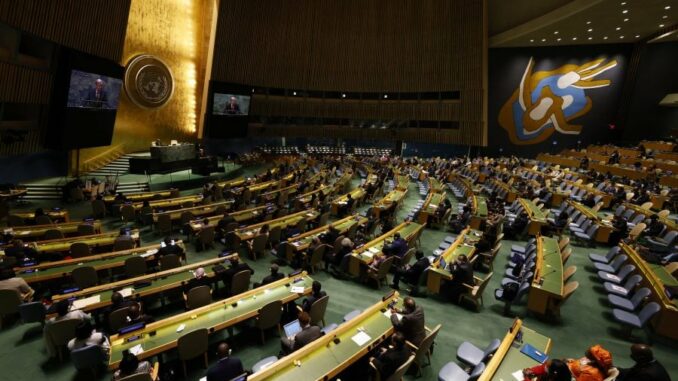
Several international petitioners underlined, Thursday in New York, that the autonomy plan presented by Morocco in 2007 is the “one and only” framework to achieve a definitive settlement of the Sahara issue.
The Moroccan initiative “is the one and only appropriate means to put an end” to this regional dispute, French political scientist Christophe Boutin pointed out at a meeting of the 4th Committee of the UN General Assembly, recalling France’s decision in support of Morocco’s sovereignty over its Sahara.
He noted that the French approach is in line with international law and respects the principles of national sovereignty and territorial integrity enshrined in the United Nations Charter.
“Like the U.S. decision of December 10, 2020, confirming the Moroccanness of the Sahara, the French decision comes from a G7 member state and permanent member of the UN Security Council, which has supported the Moroccan autonomy initiative since its presentation in 2007,” he stressed.
The petitioner said that his country has thus taken a “historic step”, by affirming that the present and future of the Sahara are part of Moroccan sovereignty, adding that this position “will undoubtedly encourage” other European countries to join the broad international consensus, which continues to strengthen.
He also called on Algeria, the main party to this regional dispute, to join the negotiating table to put an end to this artificial conflict and work towards the creation of a united Arab Maghreb.
For his part, French lawyer Hubert Seillan noted that the autonomy plan, supported by “a very large majority” of states including France, is the “one and only basis” for the settlement of the Sahara issue.
“This is proven on the ground, in the cities of Laayoune and Dakhla, with the opening of thirty-two Consulates General, from four continents,” he recalled, noting that his country “has taken the step of clarity by joining the international dynamic of massive support for Morocco.”
In her turn, U.S. expert Kaitlyn Rabe recalled the position of the United States supporting the full and entire sovereignty of Morocco over its Sahara, noting that the autonomy plan is the “only possible basis for achieving a just and lasting solution to this regional conflict.”
This initiative enables the populations of the southern provinces to manage their own affairs in a democratic manner, through legislative, executive and judicial bodies enjoying exclusive prerogatives, said Ms. Rabe who is also the president of the NGO Mondo Internazionale.
For her part, Ethiopian professor Serkalem Kassa said that the autonomy plan is “the best possible option” that offers a promising perspective in the region and beyond.
Spanish lawyer María Guillén and the president of the Canarian-Moroccan Cooperation Association, Rafael Esparza Machín, on their part, highlighted the seriousness and credibility of the Moroccan initiative, noting that this judicious approach is the result of a broad consultation that involved all stakeholders and the vital forces of society.
Other international petitioners such as Herald Torch, historian and member of the Austrian parliament, argued that the autonomy plan is a “chance for peace” and the “most realistic” path to ensure prosperity in both the Maghreb and the Sahel regions.
